Shimla Water Catchment Wildlife Sanctuary is a pristine haven for wildlife and nature lovers, nestled in the midst of one of the most beautiful regions in India, Himachal Pradesh. This sanctuary, set over 10,000 hectares of pure landscape, continues to play an essential role in the conservation of water resources and biodiversity in the region. The refuge takes pride in its varied flora and fauna, including the elusive Himalayan black bear and various avifauna. This sanctuary brings visitors into its lush landscapes and serene environment to view and enjoy this protected area’s natural beauty and ecological importance.
Location
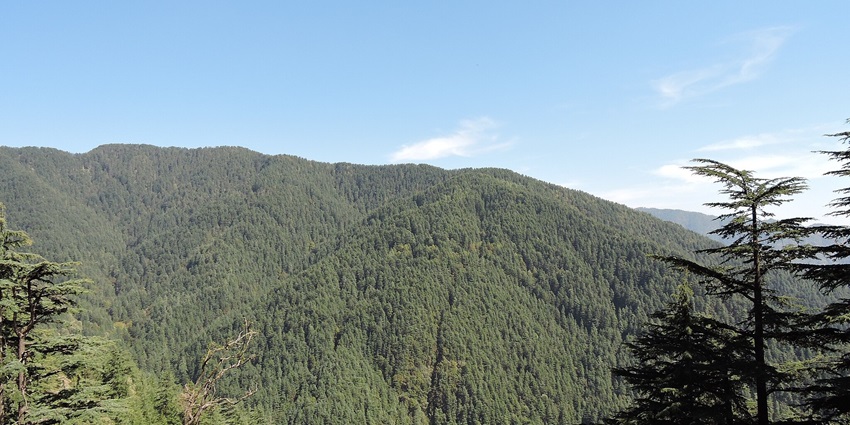
Photo: Harvinder Chandigarh / Wikimedia Commons
The Shimla Water Catchment Wildlife Sanctuary is located in the western part of Himachal Pradesh, near the city of Shimla. Covering an area of approximately 10,000 hectares, the sanctuary is strategically positioned to protect the water catchment areas that supply the city. The terrain ranges from temperate forests to lush grasslands, providing a diverse habitat for wildlife and flora.
Suggested Read: Enhance Your Vacation With These Things To Do In Shimla
How To Reach Shimla Water Catchment Wildlife Sanctuary

Photo: Harvinder Chandigarh / Wikimedia Commons
There are various ways to reach this sanctuary, including rail, road, and air:
By Air: Jubbarhatti Airport (SLV), located about 23 kilometres (14 miles) from Shimla, is the closest airport to the Shimla Water Catchment Wildlife Sanctuary. Upon arrival at the airport, you can hire a taxi or use local transport to reach Shimla. The journey from the airport to Shimla takes approximately 30 minutes. From Shimla, you can continue to the sanctuary by local transport or hired vehicle.
By Rail: Shimla Railway Station, situated in the heart of this hilly area, is the most convenient station for accessing the sanctuary. It is well-connected by narrow-gauge rail to Kalka. From Kalka, you can travel to Shimla by road. Once in Shimla, local transport or hired vehicles can take you to the sanctuary, which is located a short drive away.
By Road: You can reach Shimla via National Highway 5 from major cities such as Delhi or Chandigarh. From Delhi, the drive typically takes around 8 to 10 hours, offering scenic views of the Himalayan foothills; while from Chandigarh, it takes around 3 to 4 hours. The route is well-maintained, with picturesque landscapes along the way.
Places To Visit In And Around Shimla Water Catchment Wildlife Sanctuary
While visiting this wildlife sanctuary, there are several places and attractions you can explore nearby, such as:
1. Jakhoo Hill
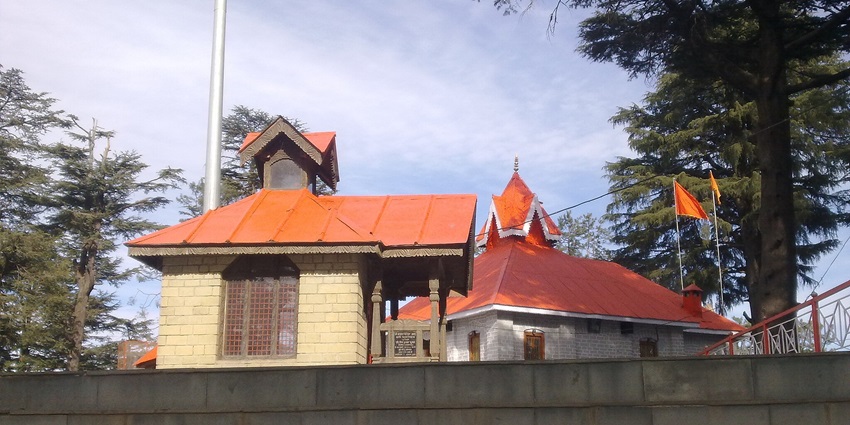
Photo: Minaxi choudhary / Wikimedia Commons
Jakhoo Hill is the highest peak of Shimla, comprising panoramic views of the surroundings of the Himalayan ranges and a picture-postcard town beneath. It lies just a short distance from most of the main Shimla attractions, and this hill is famous for its peaceful atmosphere and greenery. The main attractiveness of this place is the towering Jakhoo Temple, which is dedicated to Lord Hanuman, attracting pilgrims and tourists alike. A scenic walking trail leads to the temple, providing visitors a pleasant hike amidst nature. Jakhoo Hill is perfect for those seeking a peaceful retreat and stunning vistas near Shimla Water Catchment Wildlife Sanctuary.
Timings: 6 AM – 8 PM
Entry Fee: Free
Suggested Read: Your Ultimate Guide To Scenic Hill Stations Near Shimla
2. The Ridge

Photo: ShashankSharma2511 / Wikimedia Commons
The Ridge is a broad, open area in the heart of Shimla and commands a very fine view of the surrounding mountains and cityscape. The attraction is a focal point for casual walks and enjoying lively local bazaars. The Ridge forms one of the major places that host various events and cultural activities; that is why it is usually so lively. It is the perfect setting for experiencing Shimla with its unique combination of breathtaking natural beauty and artistic exuberance. From the local markets to panoramic views, The Ridge should be on your list of places to visit in Shimla.
Entry Fee: Free
3. Kufri
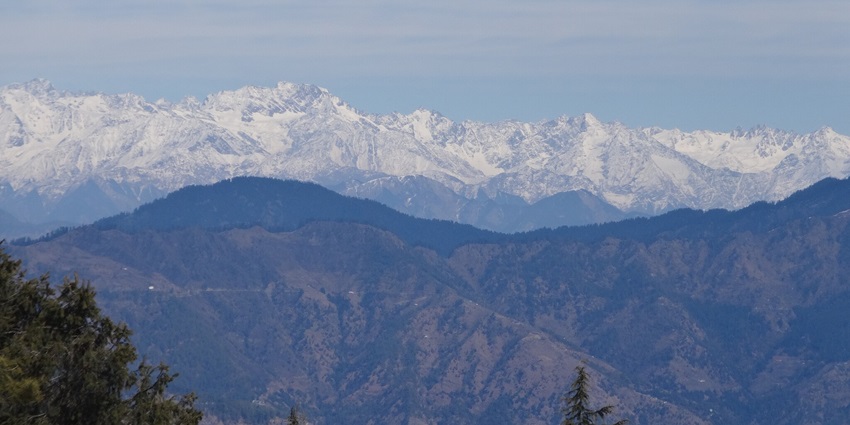
Photo: Jeyasree S.B / Wikimedia Commons
Kufri is a beautiful hill station, lying about 16 kms away from Shimla, and attracts nature lovers and adventurous sports enthusiasts. It is nestled within the Himalayas and is primarily famous for its snow-clad slopes that lure skiers and tobogganers during winter. The area abounds in lush greenery, thick forests, and panoramic views of the surrounding peaks, ensuring a fantastic retreat from the din and bustle of city life. Kufri is also home to a Himalayan wildlife zoo, where rare species such as the Himalayan monal and snow leopards can be spotted, thus making the place perfect for animal lovers.
Timings: 9 AM – 6 PM
Entry Fee: Varies for different attractions within Kufri. Entrance to the area is free, but activities like horse riding or entry to the Himalayan Nature Park may have additional charges
Suggested Read: Best Places To Visit In Shimla In December To Enjoy Winter Wonderland
4. Mall Road
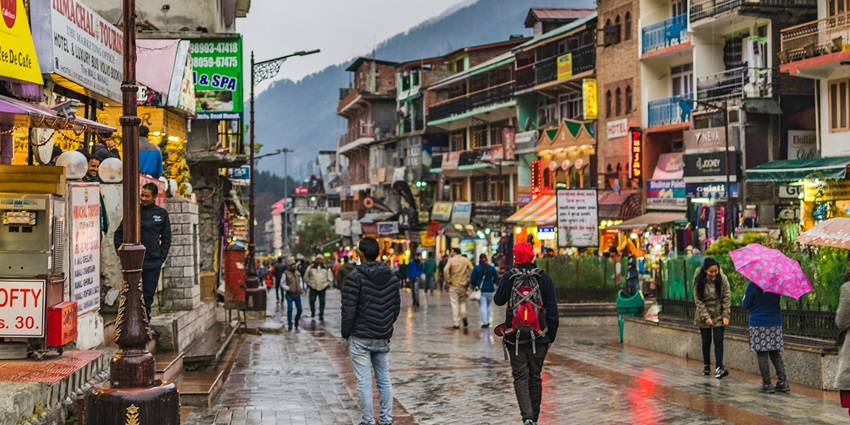
Photo: Ivishalbhutani / Wikimedia Commons
The bustling heart of Shimla Mall Road is pulsating with vibrant energies combined with shopping, eating, and culture. This is the favourite street lined with colonial-era buildings, ideal for soft strolling to capture the town’s essence. You can visit innumerable shops on every corner selling regional handicrafts, souvenirs, and woollens. The cafes and restaurants along Mall Road serve excellent local and international cuisine. The hills surrounding it, its friendly pedestrian environment, and its vibrant atmosphere make Mall Road a must-visit destination near Shimla Catchment Wildlife Sanctuary.
Timings: 10 AM – 8 PM
Entry Fee: Free
5. Tara Devi Temple
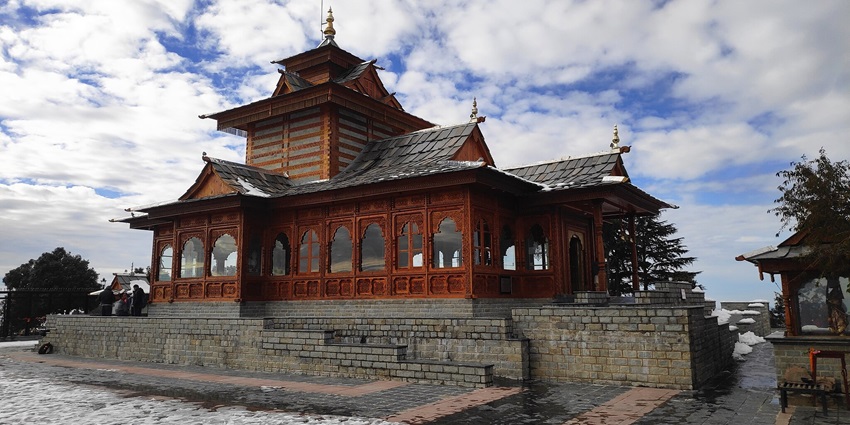
Photo: Pankajkukreti03 / Wikimedia Commons
The Tara Devi Temple, situated atop a hill near Shimla, is a highly revered Hindu shrine dedicated to Goddess Tara, an avatar of divine feminine power. Nestled amidst dense forests and offering a panoramic view of the great Himalayas and verdant valleys down below, The journey to this temple itself is rewarding and a visit to this sacred site offers a blend of spiritual solace and nature’s splendour and is one of the top Shimla Water Catchment Wildlife Sanctuary activities.
Timings: 6 AM – 8 PM daily
Entry Fee: Free
Suggested Read: Best Places To Visit In Shimla For Couples For A Quality Trip
Where To Stay

Photo: Vojtech Bruzek / Unsplash / Image For Representation Only
In Shimla, Hotel Willow Banks offers modern amenities and a central location, making it a great base for exploring the city and nearby sanctuary. Radisson Hotel Shimla is known for its luxurious accommodations and stunning views, ensuring a comfortable and scenic stay. Near the Shimla Water Catchment Wildlife Sanctuary, local guest houses provide authentic local experiences, while camping offers an adventurous option for nature enthusiasts.
Where To Eat
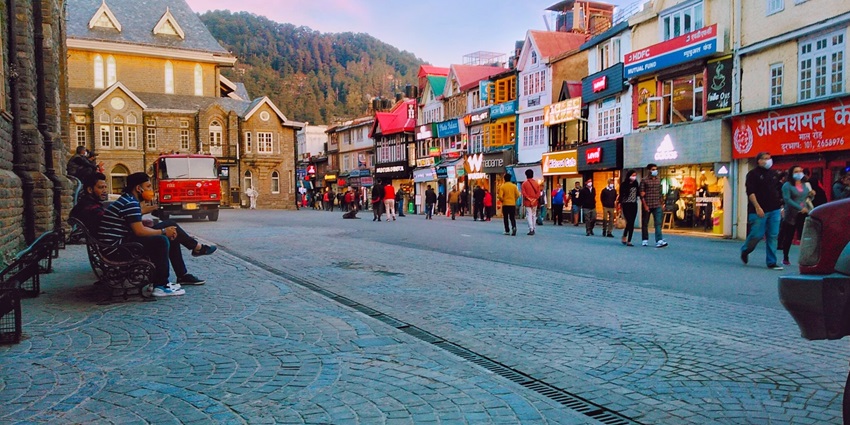
Photo: Virusism / Wikimedia Commons
In Shimla, Cafe Simla Times provides a cosy ambience and a diverse menu of local and international dishes, perfect for a meal after exploring. Indian Coffee House is a historic café offering traditional Indian fare in a nostalgic setting. Near the Shimla Water Catchment Wildlife Sanctuary, local eateries serve authentic Himachali food like Siddu and Chana Madra, giving visitors a taste of regional cuisine.
Suggested Read: An Ultimate Guide To Enjoy Adventure Sports In Shimla
Best Time To Visit
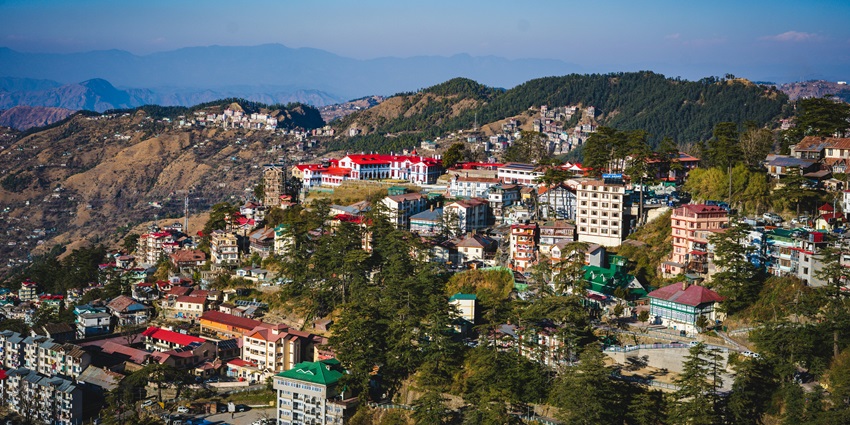
The ideal time to visit the Shimla Water Catchment Wildlife Sanctuary is between May and October. During these months, the weather is generally pleasant and favourable for exploring the sanctuary and enjoying outdoor activities. The temperature ranges from mild to warm, making it comfortable for wildlife viewing and trekking.
Other Factors To Consider
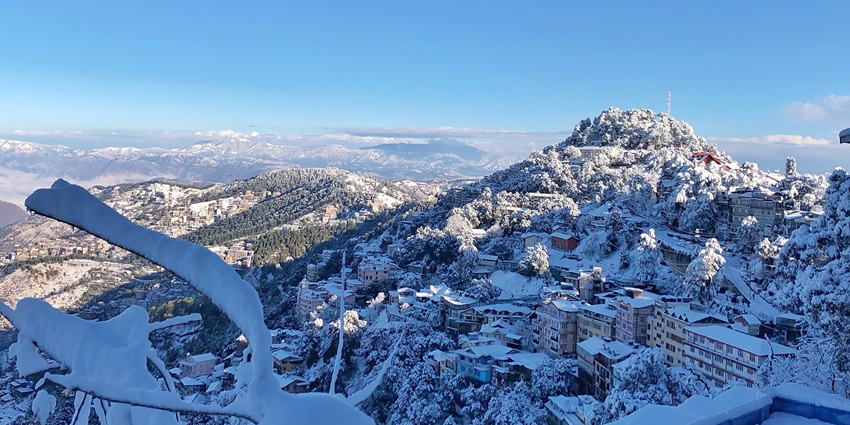
Photo: UnpetitproleX / Wikimedia Commons
Average Cost Of The Trip
A trip to the Shimla Water Catchment Wildlife Sanctuary typically costs between ₹15,000 and ₹25,000 per person. This budget includes transportation, lodging, park entrance fees, and basic food. The approximate ticket price for the sanctuary is ₹500 per person. Budget travellers can find economical alternatives, while mid-range travellers might opt for more comfortable accommodations and guided tours. Costs may vary based on the season, length of stay, and personal preferences, so it’s best to plan and book ahead to manage expenses effectively.
Tips For Travellers
- Verify if you need any permits or permissions before your visit. Approval from local wildlife authorities or forest departments may be required.
- The Himalayan weather can change rapidly, so make sure to pack for cold temperatures and possible snowfall, especially in winter.
- If you’re travelling via road, be mindful of the uneven mountainous terrain. You may consider hiring an experienced local driver.
- Ensure you’re in good health and acclimated to higher altitudes to avoid altitude sickness.
- Bring sufficient food, water, and first aid supplies, as remote areas may lack facilities and services.
- Refrain from disturbing animals and adhere to the sanctuary’s rules.
Suggested Read: Best Places To Visit Near Shimla
Shimla Water Catchment Wildlife Sanctuary offers a unique blend of natural beauty, rich biodiversity, and ecological significance, making it a remarkable destination for nature enthusiasts and adventure seekers. From exploring the lush landscapes and spotting elusive wildlife to appreciating the importance of water conservation, visiting Shimla Water Catchment Wildlife Sanctuary promises a refreshing and en/lightening experience. Plan your trip, pack your essentials, and book your seat with TripXL.
Cover Photo: Altaipanther / Wikimedia Commons / Image For Representation Only


 WhatsApp
WhatsApp
 Twitter
Twitter









